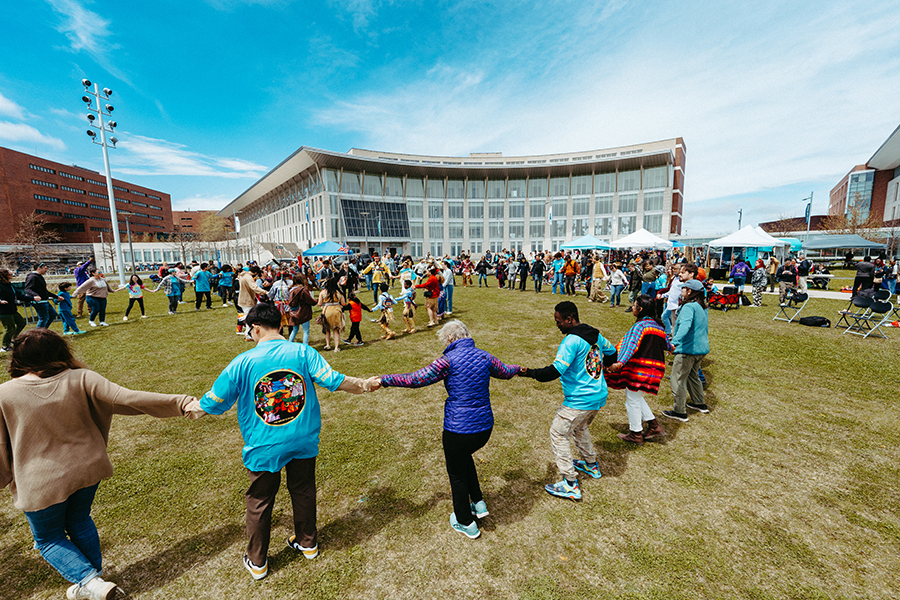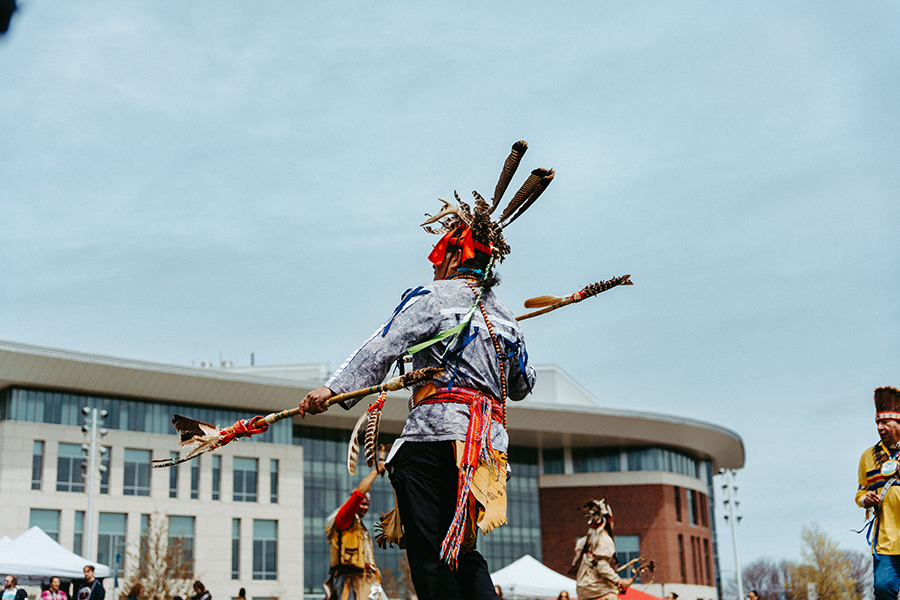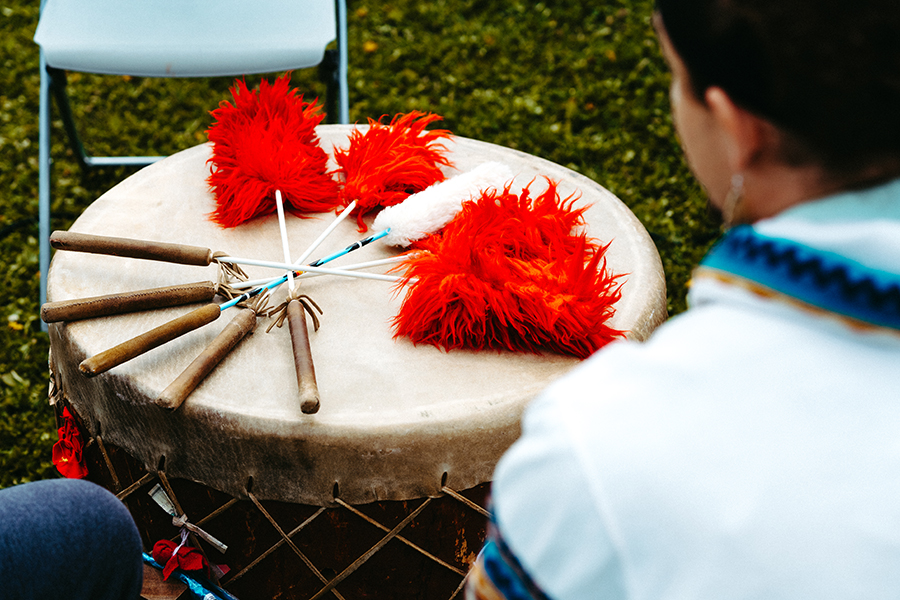- Home
- About
- Leadership & Administration
- Strategic Plan
- Strategic Priority 3: For the City
- More Than 300 Participants Celebrate Indigenous Culture at UMass Boston Powwow
Menu
- Leadership & Administration
- About Chancellor Marcelo Suárez-Orozco
- Chancellor's Cabinet Members
- Senior Leadership Team
- Chancellor's Staff
- Chancellor Event Request
- Chancellor Meeting Request
- Chancellor's Reports
- Campus Plans
- Faisal-Nichols Honorary Scholarship
- Strategic Plan
- Beacon Budget Model
- Chancellor's Lecture Series
- Beacon Wellness Initiative
- Restorative Justice Commission
- Mission
- Facts & Figures
- Accreditation & Rankings
- History of UMass Boston
- Student Consumer Information
More Than 300 Participants Celebrate Indigenous Culture at UMass Boston Powwow
More than 300 Indigenous and non-Indigenous attendees, including many local tribal leaders, gathered on UMass Boston’s Campus Center lawn on May 4 for a powwow, celebrating Native culture through food, music, art, and dance.

This was the first powwow hosted at UMass Boston in the past several years, and it was the only powwow in the city of Boston to date in 2024.
A Native American powwow is an opportunity to bring people together for reflection, celebration, to give thanks, and to honor the traditions of Native ancestors and the resilience of contemporary Native communities. The event brought together organizations and vendors from across the state, including artisans offering a variety of handcrafted wares including beading, leatherwork, and jewelry.

The event was co-sponsored by the Institute for New England Native American Studies, UMass Boston’s Native American and Indigenous Studies Program (NAIS), the Native and Indigenous Student Association (NISA), the City of Boston Mayor’s Office of New Urban Mechanics and Equity & Inclusion Cabinet, Native American Lifelines Inc., and the UMass Boston Chancellor’s Office.
“The resurgence of the UMB Powwow is such a significant moment for our university and a testament to the hard work and advocacy of our Indigenous student leadership on campus and the faculty and staff who support them in the Institute for New England Native American Studies and the Native American and Indigenous Studies Program (NAIS),” said Assistant Professor and NAIS Director Maria John. “We also couldn’t have hosted the powwow this year without the committed support of the Chancellor’s Office. As Boston’s public university, it is only fitting that our campus can be a partner in facilitating the gathering and celebrations of local Tribes.”
Tribal leaders, including Chief Cheryll Holley of the Hassanamisco Nipmuc Band and Vice Chairman Carlton Hendricks of the Mashpee Wampanoag Tribe, were in attendance, alongside Jim Peters, executive director of the Massachusetts Commission on Indian Affairs, and Troy Philips, board chair of the Massachusetts Commission on Indian Affairs. NAICOB staff, MCNAA board members, and Native American Lifelines also were in attendance, showing strong community support.
“As an annual event, the Powwow could do so much to deepen the connections and commitments between our university, our Indigenous students, and local Tribes,” said Cedric Woods, director of the New England Institute for Native American Studies.
Organized primarily by Jamie Morrison and Rachel Winters from the Institute for New England Native American Studies, with significant contributions from the Native and Indigenous Student Association (NISA) student leaders Valentina Romero, Amanda Lawrence, Macayla Libby, and graduate student Brittney Walley.
There was a grand entry of dancers dressed in traditional regalia followed by a variety of community dances including a stomp dance, round dance, and more.
Two students served as head dancers: Brittney Walley (Nipmuc), a master’s student in Critical Ethnic and Community Studies, and Caesar Hendricks (Mashpee Wampanoag), a first year student and member of the men’s lacrosse team. Additionally, UMass Boston alum and Asian American Program Coordinator Asa Peters (Mashpee Wampanoag) led a stomp dance during the Powwow, and student dance group Hoy Pinoy performed.

The Iron River Singers served as the host drum, joined by Urban Thunder and Red Hawk Singers as guest drums. Justin Beatty was the powwow emcee and James Moreis served as the arena director.
“Seeing our Indigenous students take on leadership roles in organizing this year’s powwow and seeing them actively support each other in the celebration of all their distinct cultures has been nothing short of inspiring,” John said. “It is not easy to organize an event of this size, and our students should be incredibly proud of what they have accomplished. It was a beautiful and important gathering, and I hope the visibility brought by this year’s powwow will continue to nurture the growth of our Indigenous student community on campus.”